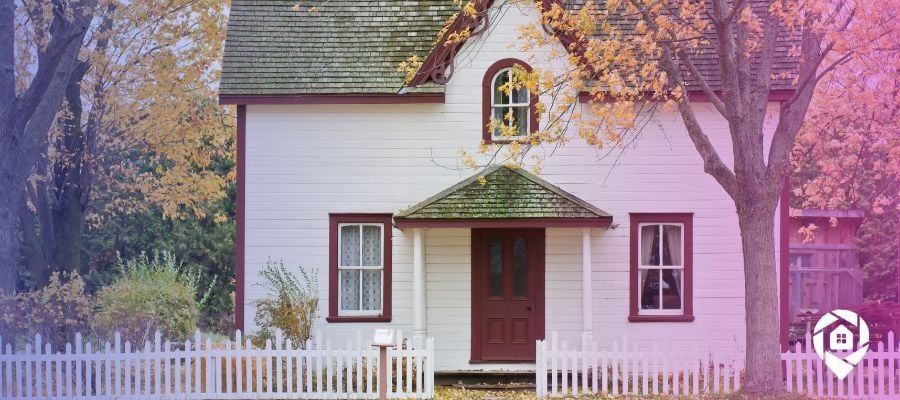
Inside a Lean Wholesaling Operation: $1M+ Revenue With Just 2 People

Alex and John weren’t just business partners—they were childhood friends. They met in kindergarten, shared classrooms, played sports together, and unknowingly built the foundation for a lifelong partnership. Years later, that natural chemistry evolved into a lean, highly profitable real estate business.
From Kindergarten to Closers: A Real Estate Partnership Years in the Making
Want to see how Alex and John explain their process in their own words? Watch the full interview below to learn how they built a seven-figure wholesaling business with just two people.
Alex and John, lifelong friends since kindergarten, turned their friendship into a seven-figure real estate business. Their journey began with shared experiences in school and sports, which built a deep level of trust and understanding. They often reflect on how that early chemistry translated into their business partnership—they intuitively understand each other’s moves, much like how they did on the basketball court.
After college, they pursued real estate separately—Alex moved to California while John remained in Philadelphia—but their strong bond made the idea of working together feel natural and inevitable. They officially partnered in 2019 after years of exploring rental investments on their own. Their first BRRRR deal confirmed the opportunity, and soon after, they began scaling a lean real estate wholesaling operation.
Lean Real Estate Wholesaling: Their Two-Pronged Model
Alex and John run a direct-to-seller marketing model. Their core engine? A custom WordPress website designed to rank for motivated seller keywords in Philadelphia. Sellers searching for fast, simple property solutions find their site and reach out directly, no cold calling necessary.
These inbound SEO leads are typically more serious and less combative. Alex mastered SEO during the COVID-19 lockdown, diving deep into strategy, technical setup, and content development. They joined masterminds, studied what worked, and executed consistently. Within five months, the site ranked and began generating steady leads.
Their residential deals primarily come from inbound SEO leads in Philadelphia. For industrial assets, warehouses, flex spaces, and self-storage, they run outbound campaigns through direct mail and SMS.
“Cold calling made people angry, and in Philadelphia they start angry. When they call us, they want an easy button. It’s a better fit and way more enjoyable.”
How They Use SEO to Generate High-Quality Seller Leads
During the pandemic, Alex took advantage of the downtime to learn SEO. With guidance from a mastermind and their developer friend, also a kindergarten buddy, they built a custom WordPress site optimized for seller keywords.
Key SEO Strategies They Applied:
- Keyword-rich landing pages like "sell my house fast Philadelphia"
- Fast-loading, mobile-friendly design
- High-quality content focused on seller needs
- Local SEO: Google Business Profile, citations, and reviews
- Link building through partnerships and outreach
They bootstrapped the site, paying their developer after their first successful deal—an investment that continues to yield high-quality, inbound seller leads.
“There was no silver bullet. Just trial, error, and consistency.”
Outbound Industrial Wholesaling: Scalable Without a Team
Alex and John take a focused marketing approach:
- Inbound Residential: SEO brings in motivated homeowners in Philadelphia
- Outbound Industrial: Mail and SMS campaigns target warehouse and flex space owners nationally
They send about 5,000 text messages each month, supported by highly targeted data (owner age, language, and occupation). These texts often reach small business owners looking to sell larger commercial assets. It’s a volume they can handle without a big team.
When deals land outside of Philadelphia, they use Facebook investor groups to find local buyers fast. This system works so well that they describe Facebook groups as “a standalone app we’d use every day.”
“There’s no better way to find local, cash buyers than inside the right Facebook group.”
Wholetailing Real Estate for Bigger Profit Margins
At first, Alex and John relied heavily on their private buyers list, believing it was their most valuable asset. But over time, they discovered that listing properties—especially after light cleanouts and good photos—led to higher spreads.
They shifted toward a wholetailing strategy:
- Buy the property and take title
- Clean it out and photograph it professionally
- List it on the open market
This approach attracts what they call “pickup-truck investors”—mom-and-pop flippers who want a slightly discounted property and are willing to pay more than institutional buyers.
“Once we let go of the idea that our buyer list was sacred, everything changed.”
How to Scale a Lean Real Estate Wholesaling Business
This lean team of two focuses on efficiency over expansion. To streamline operations, they use:
- CRM systems for seller pipeline tracking
- Self-showing lockboxes with identity verification for rental units
- Google Sheets for automation
- Facebook groups for disposition
The self-showing system reduces scheduling overhead. Renters upload ID or credit card info to receive an auto-texted door code. The platform tracks entry and key returns, flagging suspicious activity.
“Technology saves us time, cuts the noise, and lets us stay lean.”
Why BRRRRs Took a Back Seat
Their first BRRRR (Buy, Rehab, Rent, Refinance, Repeat) deal was a success:
- Purchase Price: ~$133,000 (online auction)
- Rehab: ~$60,000–$70,000
- Appraisal: ~$300,000+
- Rent: ~$3,300/month
- Mortgage: ~$1,350/month
Despite its success, BRRRRs demanded too much attention. They found that whenever they focused on renovations, their sales pipeline slowed down. Since wholesaling and wholetailing drove better ROI with less stress, they pivoted.
“We realized every hour on a rehab was an hour not spent locking up another deal.”
Financing and Flexibility in Philadelphia
Thanks to low property prices in Philadelphia, most deals are self-funded. They do use hard money for larger flips, but prefer to:
- Avoid lender delays
- Eliminate excessive fees
- Maintain decision-making control
Their first BRRRR was funded with help from a family friend. Since then, smart buying and efficient listings have kept them profitable without heavy borrowing.
How Facebook Groups Became Their Secret Weapon for Dispo
Disposition is no longer about having a giant buyers list. Instead, Alex and John tap into Facebook investor groups:
- Join niche and city-specific groups
- Post clear, detailed property info
- DM active members to spark conversations
This works especially well for industrial deals in remote markets like Texas or Ohio, where they lack in-person networks.
“Even if we gave up Facebook, we’d keep the groups. Nothing else is as targeted.”
Discover tips for using Facebook to sell off-market deals
Real Estate Licensing Rules They Follow
Pennsylvania now requires wholesale real estate investors to be licensed. Fortunately, Alex has held a license since 2017. Philadelphia also requires insurance and local licensing.
They already operated ethically and disclosed properly, so the new rules didn’t affect them. But they recommend others get licensed early, it simplifies everything.
“Getting licensed helped us skip the telephone game and speak directly with agents.”
Property Management Tips for Lean Real Estate Investors
They used to manage all their rentals in-house. Over time, they found it was not worth the time investment.
Pros of Outsourcing:
- More time for sales and growth
- Less tenant coordination
Cons:
- Higher repair fees
- Less control over vacancy and maintenance
Their current property manager charges ~8% per month, plus markups on repairs. They review these expenses often to ensure profitability.
Final Thoughts: Why Their Lean Strategy Works
Alex and John’s success comes down to one powerful idea: do fewer things, better. By combining SEO for inbound leads with outbound industrial outreach, they’ve built a highly profitable, low-overhead operation.
They stay lean, avoid distractions, and focus on repeatable systems that drive deals—not complexity. For other real estate investors, their path is proof that bigger isn't always better.
-
Lean wins: A small team can close high-margin deals
-
SEO matters: Inbound leads are warmer and easier to convert
-
Wholetailing works: Simple upgrades + listing can outperform traditional wholesaling
-
Dispo is changing: Facebook groups often outperform stale buyer lists
-
Time is money: Avoid tasks that stall the sales engine
Looking Ahead: Triple-Net Goals and Community Growth
Alex and John are leaning into triple-net industrial investments—a path that fits their desire for passive income and minimal management. While staying lean, they’re investing in personal growth and community through high-level mastermind groups like Collective Genius.
“We’re just two best friends rocking and rolling. There’s still so much we can learn.”
They continue to build a business that fits their lives—overhead light, heavy on strategy.
Frequently Asked Questions
Q1: How do you start a lean real estate wholesaling business?
Start with one market. Build an SEO-optimized website targeting motivated sellers. Use systems like texting and lockboxes. Keep the team small and efficient.
Q2: What’s the difference between wholesaling and wholetailing?
Wholesaling assigns a contract without taking ownership. Wholetailing involves buying, cleaning, photographing, and listing the property for sale.
Q3: Can SEO really bring in real estate leads?
Yes. A website targeting keywords like “sell my house fast [city]” can bring in high-quality, motivated leads without cold calling.
Q4: Are Facebook groups effective for selling investment properties?
Absolutely. Facebook investor groups offer direct access to local buyers and faster, more credible connections than traditional lists.
Q5: How do I wholesale industrial properties?
Use outbound marketing—mailers and text campaigns—targeting verified owners of flex and warehouse spaces. Use Facebook groups for dispo if outside your area.
Want to build a lean wholesaling business like Alex and John? Focus on SEO, pick high-leverage channels, and let consistency win.

About Maria Tresvalles
Maria Tresvalles is the dynamic Marketing Specialist at DealMachine, where she has been a key player for the past five years. With a strong background in customer relations, Maria started her journey at DealMachine as a Customer Success Coordinator, where she honed her skills in understanding customer needs and driving satisfaction.



